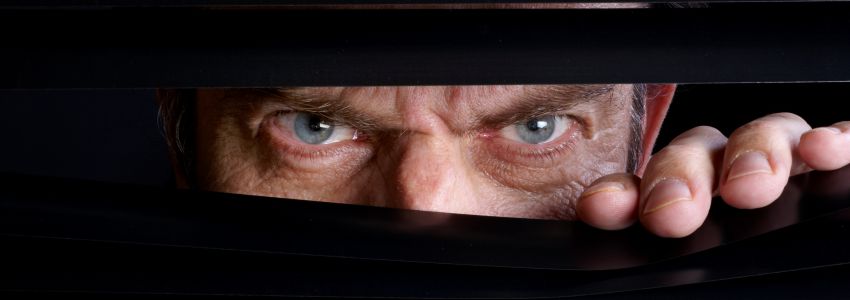The Idea: In 2002, Roderick Kramer wrote an article in HBR titled, “When Paranoia Makes Sense,” that shared his research on the nature of hypersensitivity to future risk. His conclusion: a little paranoia goes a long way. He calls it “prudent paranoia,” and it’s the unsexy northern star of strategy: never, ever lose sight of competitive risk and emerging threats.
A third of shopping malls in the U.S. will close in the coming years while others work through bankruptcies (Payless ShoeSource, Gymboree, Gander Mountain, hhgregg, RadioShack, The Limited, and rue21, to name a few). It seems there are only two options: be disrupted or embrace a little paranoia, keeping an eye on others who might wreak havoc on you.
The Cinderella story of retail appears to be T.J. Maxx, who is outperforming competitors with only one percent of their revenue coming through ecommerce, according to eMarketer estimates. How is that possible in today’s digital world? T.J. Maxx is winning in apparel and outperforming competitors with extreme consumer value and a “treasure hunt” experience. They are the ones taking competitive ground.
“I don’t think retail is dead. Mediocre retail experiences are dead,” shares Warby Parker co-founder Neil Blumenthal. Paranoid retailers, feverishly reacquainting themselves with their customer, are winning. The ambivalent are falling.
Sephora understands: to be an experiential brand, experiences must be expertly crafted. CEO Calvin McDonald makes a habit of ingesting critique: “Glassdoor is one of the sites I go to and read the comments. Feedback is a gift and it’s a wonderful opportunity to hear what people are saying — the good, the bad and the ugly. I don’t want to just hear the good all the time. I want to see and hear what the opportunities are.” In-store specialists/designers are paid well and are expected to regularly impart feedback. It’s integral to the mission as he says, “in retail sometimes the art is doing common things uncommonly well.” McDonald was Glassdoor’s highest ranked beauty CEO this year.
As my friend Kantar’s Chief Customer Officer, Bryan Gildenberg recently shared at the IMPACT Forum “By 2020 consumers will be (on average) spending $2 on non-stuff, and $1 on stuff.” Services and experiences have disrupted many tangible products. What unique service can you add to your business? What’s holding you back from transforming it?
Bain Consultant’s Chris Zook & James Allen offer important advice, reminding us “The skills that help founders get their company to take off also are the opposite of those needed to sustain new growth.” They remind us, “Once the company reaches cruising altitude, its leaders need to listen more to competing voices and invest more time in emerging stakeholders.” Who challenges your thinking?
Intel’s former CEO and Chairman Andy Grove believed “Only the paranoid survive.” Truth be known, only the obsessive will thrive. How are you at honestly assessing what’s around the corner and listening to your customer?
Could you be next?

